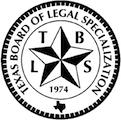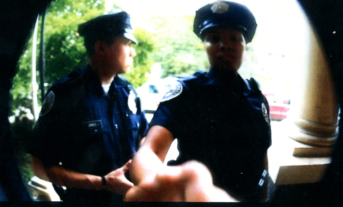Generally speaking, they cannot.
You CANNOT be penalized for refusing to answer an officer’s questions. If you try to cooperate by answering questions while you are being held in police custody, you may create difficulties for your lawyer in defending you. ALWAYS ASK TO CONSULT WITH AN ADVISE WITH AN ATTORNEY. If the police are conducting a criminal investigation and you are the “person of interest” – it is not a violation of law to withhold information that can incriminate you. If there is any concern in your mind that you may somehow be drawn into their investigation and become a “person of interest” – then refuse to answer any questions.
Can I refuse to give a police officer my name?
Yes. The general rule is as follows: It is not a crime to give a false name to a police officer during a “consensual encounter” interview (i.e. you are not under arrest or under any suspicion of committing a criminal offense). After an arrest, it is a crime to give a false name, however.
According to Article 38.02 of the Texas Penal Code, a person must identify themselves with a valid name, address, and date of birth to a police officer who has lawfully arrested them. Notice that the person must be under arrest for this to apply. In Texas, if you are not under lawful arrest, you do not have to identify yourself.
If it is a “consensual encounter” – they absolutely cannot arrest you for refusing to answer questions. You do not have to say anything to a police officer to assist him in making a case against you. The police can stop you in the street and talk to you. You do not have to, and should not, answer.
The only person who can force you to answer questions is a Judge, and then only in limited circumstances. Thosecircumstances only occur in a courtroom. The street is not a courtroom, and a police officer is not a Judge.






















